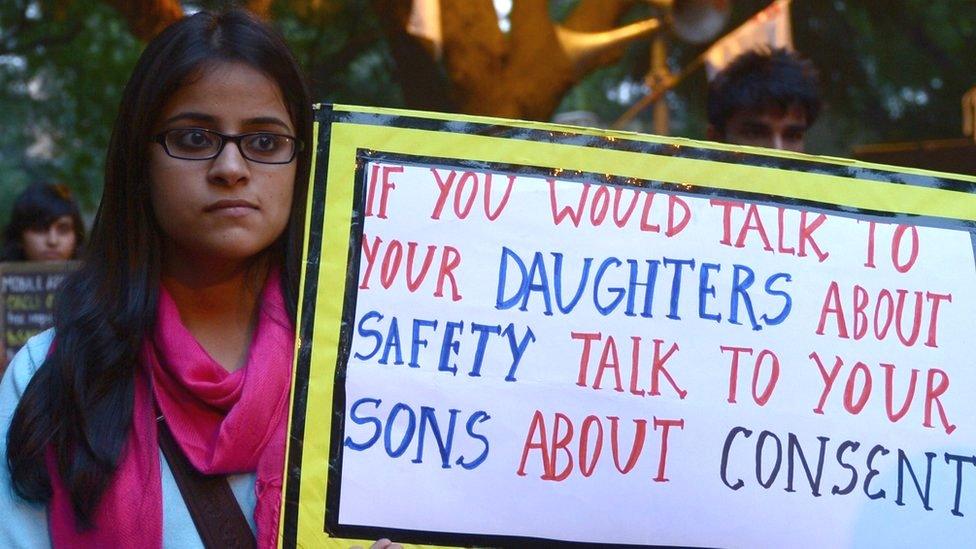Hyderabad rape: 'Blame the men - not the safe city'
- Published
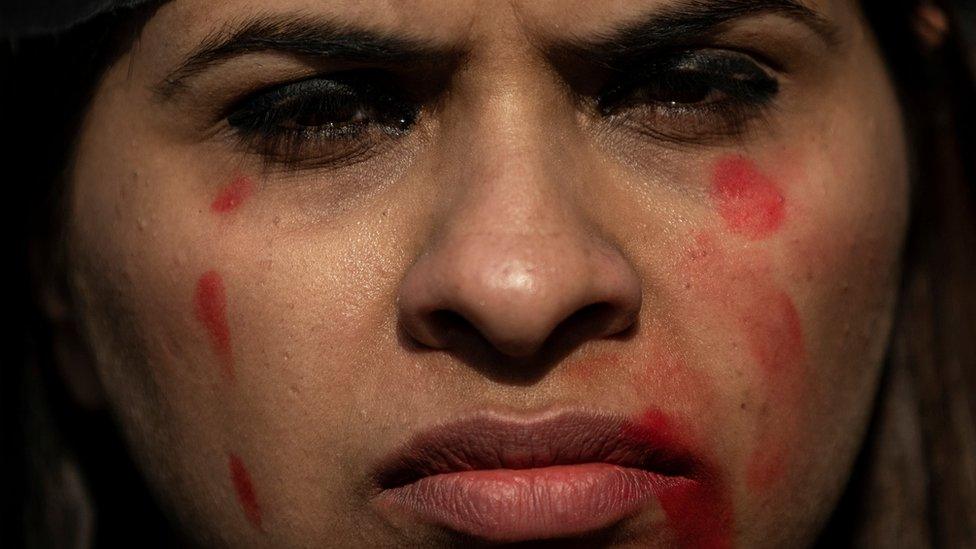
The young woman's death has angered thousands in India
The rape and murder of a young veterinary doctor in the southern city of Hyderabad has sparked anger, spotlighting women's safety in yet another Indian city. Aparna Alluri and Deepthi Bathini report.
Hyderabad woke up on Friday to news of a grisly murder: the charred body of a 27-year-old woman had been found under a flyover on the outskirts of the city the previous day. But it wasn't until later on Friday that police said they believed she was gang-raped and killed before being set on fire. Four men have been arrested in connection with the crimes.
Meanwhile, shock and outrage over the case has led to protests - three police officers who allegedly delayed registering a missing persons complaint have been suspended, and the state's chief minister has asked for the case to be heard in a fast-track court to ensure a speedy trial.
But the case has also raised an inevitable question - how safe is Hyderabad?
'We've got used to fear'
"I have always felt safe commuting in the city, but incidents like these come as a jolt. It's also a wake-up call to stay cautious and use police apps," says 31-year-old Padmaja Rao.
"I have always felt very safe travelling around Hyderabad. I work different shifts in a corporate company, and I have never felt unsafe even during the night shifts," says Tamoli Das, a 33-year-old IT professional.
"But I would say it can feel unsafe when you travel in the outskirts or less-populated areas," she adds.
Police believe the victim - who cannot be named for legal reasons - was attacked near a toll plaza on the outskirts of the city, where she had parked her scooter.
The victim's sister - who cannot be identified for legal reasons - spoke out after her sibling's death
The outskirts of Hyderabad, a bustling city of more than eight million people, are constantly expanding. A 400-year-old city of jagged boulders and royal tombs, it grew rapidly in the 2000s amid India's software boom. As more and more companies and jobs arrived, the city drew young working people from all over the country.
Some of the world's top companies - Microsoft, Google and Facebook - have sprawling outposts here. India's first Ikea store opened here in 2018.
For the most part, Hyderabad has been viewed as a safe city. It accounts for 5.6% of the country's reported crimes against women, far fewer than Delhi (28.3%) or even Bangalore (8.7%), another southern city and IT hub. This is according to India's national crime data for 2017, the latest year for which figures are available.
Even the number of reported rape cases in Hyderabad - 59 - is far less than in many other cities, including Delhi - 1,168. However, it's worth remembering that many rape cases in India still go unreported.
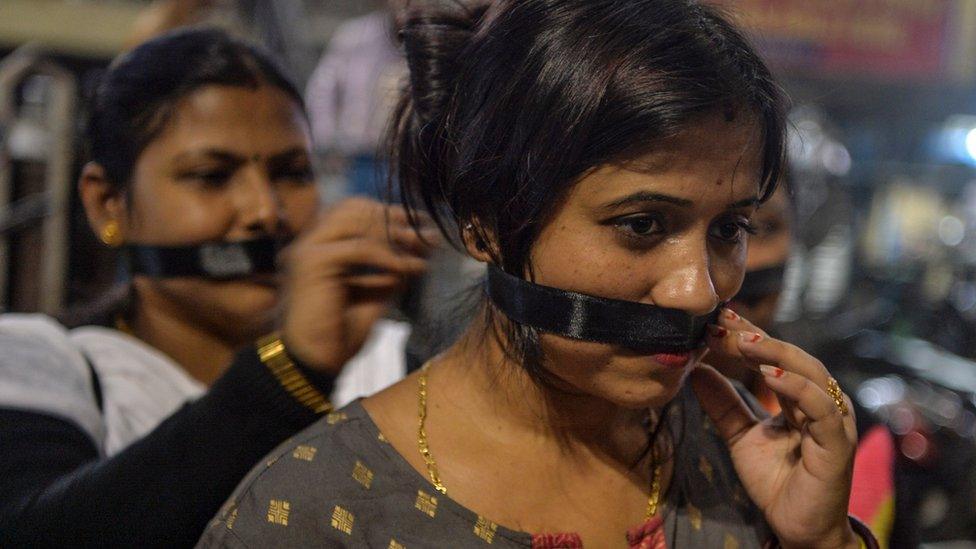
Those who live in Hyderabad say they mainly feel safe
But this case put the city in the spotlight. Part of the reason is that many of the city's young working women can easily relate to the victim - also a working woman - as well as the circumstances of the crime: She was waiting near the toll plaza for a flat tyre on her bike to be fixed when she was attacked. She had been on the phone to her sister and confessed to being scared because she was standing in a deserted spot on the side of the road.
There have also been comparisons made with the gang-rape of a 23-year-old physiotherapy student in Delhi in 2012 - the case caused a groundswell of protests that produced significant changes in India's anti-rape laws. The Hyderabad victim's name was the top Twitter trend in the country for several hours as tens of thousands of angry tweets demanded justice.
Young women from the city, however, caution against drawing conclusions about the city's safety based on this case alone.
They say while Hyderabad may be safer than Delhi, it doesn't mean they face no stalking or harassment living here. They add that they take several precautions irrespective of the city.
"I remember an incident in 2017 - a group of us girls were driving our scooters late in the evening and we were surrounded by men on bikes. They began teasing us and scaring us by circling us and performing stunts," says Parineetha Madna, 29, a medical professional.
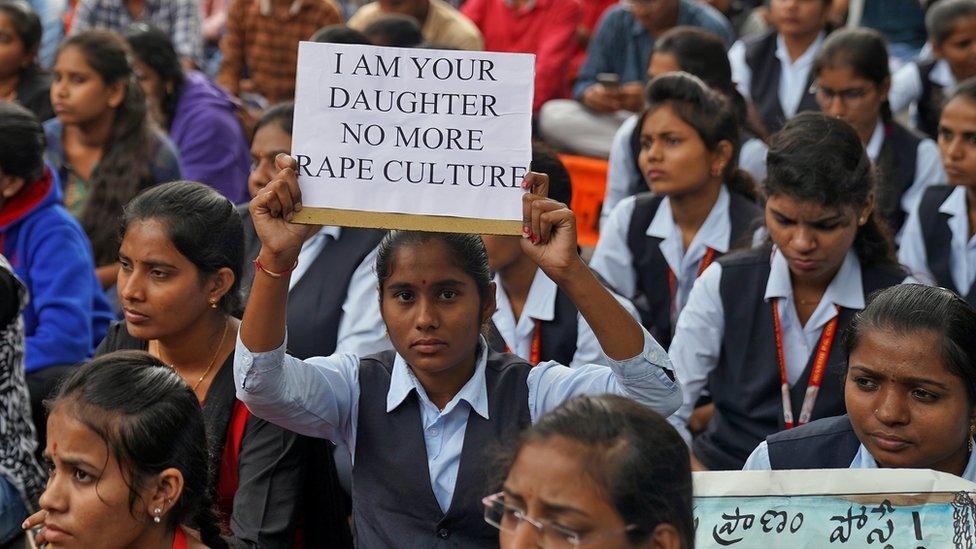
The problem, one woman told the BBC, is not the city - but the men
She says the women luckily spotted a police patrol vehicle and approached them for help.
Some women also told BBC Telugu that the case highlights the issue of safe public transport as the victim was attacked while waiting to return home on her bike.
"I bought myself a car to commute as I don't find public transport a safe option and bikes definitely don't feel safe. But men can make you feel uncomfortable in your own car," says Samyukta, 31.
"Hyderabad is not the problem. Men who think women who are on the road are public property are the real problem. We have got used to fear. Let's fix attitudes instead of trying to blame cities," she adds.
- Published2 December 2019
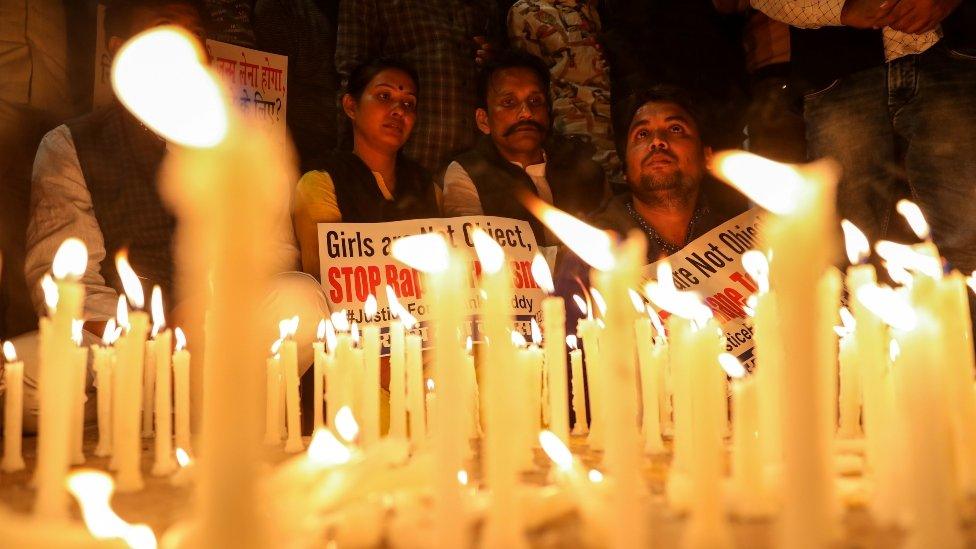
- Published29 November 2019
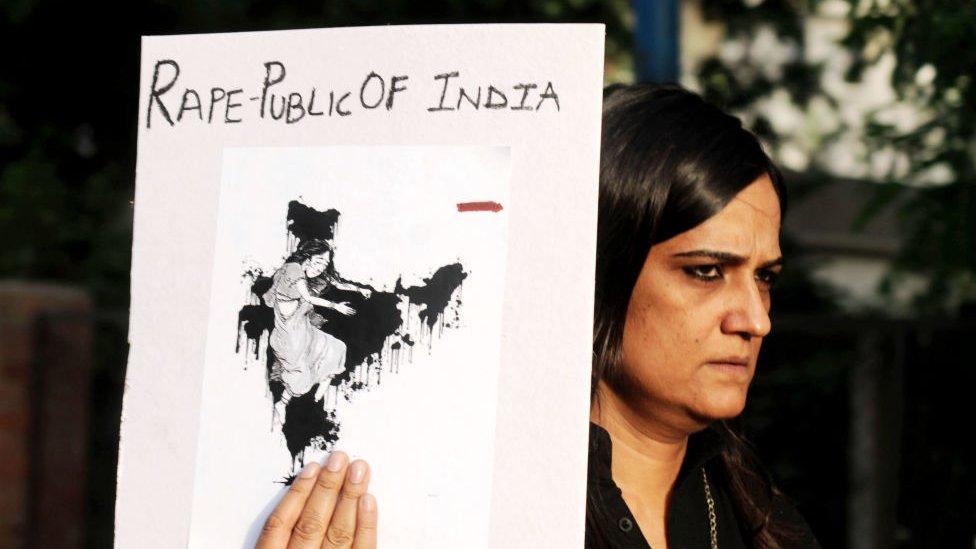
- Published26 September 2017
